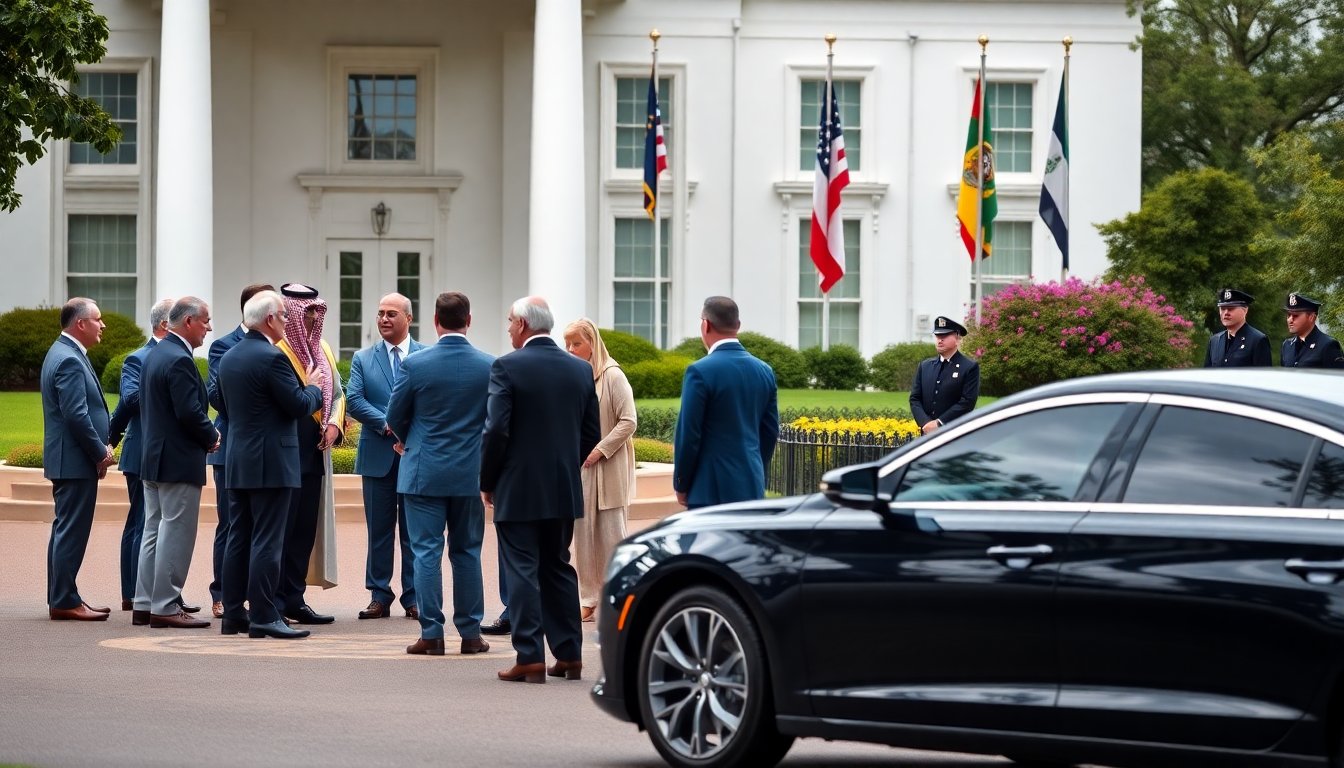Table of Contents
In a pivotal moment for international relations, Saudi Crown Prince Mohammed bin Salman is preparing for his first visit to the White House since 2018. This visit is significant, as it has the potential to reshape Middle Eastern dynamics, particularly regarding defense strategies and diplomatic relations with Israel.
The agenda for this meeting will likely encompass various critical topics, including the establishment of a defense pact to bolster military and intelligence cooperation between the United States and Saudi Arabia. Additionally, discussions will center on the reconstruction of Gaza and the normalization of relations with Israel.
Strengthening U.S.-Saudi relations
The U.S.-Saudi relationship has evolved considerably since the Kingdom’s inception in 1932, originally rooted in oil interests. Over the years, this partnership has deepened, particularly in defense. Recent negotiations indicate a potential robust mutual defense agreement, marking a new phase in their bilateral relations.
As both nations navigate complex regional politics, their mutual interests have aligned more closely. The U.S. and Saudi Arabia recently shelved plans to impose international emissions targets for shipping, demonstrating a commitment to their strategic partnership. Furthermore, discussions about hosting a National Football League game in Riyadh highlight the evolving cultural exchanges between the two nations.
The prospect of joining the Abraham Accords
With the fragile ceasefire in Gaza holding, the United States aims to advance its Middle Eastern agenda, which includes encouraging Saudi Arabia to join the Abraham Accords. This agreement, already signed by Bahrain, Morocco, and the UAE, seeks to normalize relations with Israel. Saudi Arabia’s participation could facilitate diplomatic relations, tourism, and business collaborations with Israel.
Historically, Saudi Arabia has held a position of not recognizing Israel until a Palestinian state is established. However, recent indications suggest a softening of this stance. Just before the Israel-Hamas conflict erupted, MBS hinted at a growing rapprochement with Israel, marking a significant shift in the Kingdom’s foreign policy.
Challenges in normalizing relations
Despite these promising developments, several challenges remain in the normalization process. Saudi Arabia’s political landscape is complex, with internal factions potentially resisting any agreement with Israel. Furthermore, the ongoing conflict in Gaza has heightened public skepticism towards Israel, complicating the government’s efforts to progress.
The Crown Prince faces the delicate task of maintaining Saudi Arabia’s leadership role in the Arab and Muslim worlds while managing a populace that largely opposes normalization with Israel. As Hussein Ibish, a senior fellow at the Arab Gulf States Initiative, noted, the Kingdom must be cautious to protect its interests and reputation.
The role of the U.S. in these negotiations
The United States, under President Donald Trump, is optimistic about facilitating Saudi-Israel relations. Trump has expressed confidence that Saudi Arabia will soon join the other signatories of the Abraham Accords. However, the prospect of normalization heavily depends on Israel’s willingness to consider a two-state solution for the Palestinians, a possibility that appears unlikely under the current Israeli leadership.
The outcome of these negotiations will not only impact regional stability but also redefine the global perception of U.S. involvement in the Middle East. With Trump’s administration actively seeking to strengthen these alliances, the stage is set for potentially transformative changes in the geopolitical landscape.
The agenda for this meeting will likely encompass various critical topics, including the establishment of a defense pact to bolster military and intelligence cooperation between the United States and Saudi Arabia. Additionally, discussions will center on the reconstruction of Gaza and the normalization of relations with Israel.0


